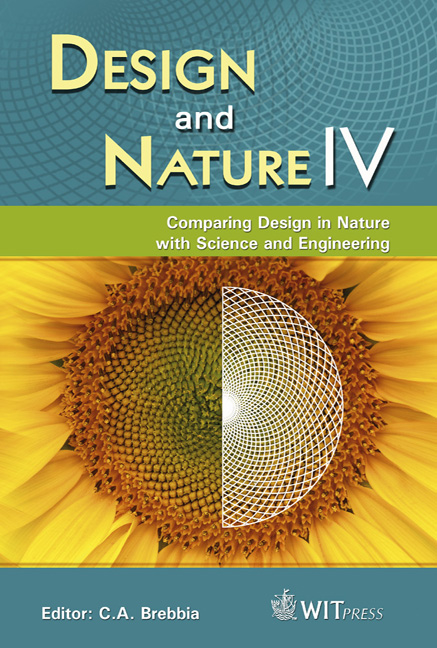Organizational Features In Leaves For Application In Shading Systems For Building Envelopes
Price
Free (open access)
Transaction
Volume
114
Pages
10
Page Range
87 - 96
Published
2008
Size
1,168 kb
Paper DOI
10.2495/DN080101
Copyright
WIT Press
Author(s)
L. Badarnah & U. Knaack
Abstract
Main principles and methods for sunlight tracking in leaves are presented for possible application in shading systems. Plants have developed unique mechanisms for specific climates and locations, where they can determine the amount of exposure for efficient performance. Physiology and geometry are the most significant factors influencing light interception in plants, where leaf distribution, orientation and dynamics influence the exposure to sun radiation. The possibility of developing a shading system for building envelopes, based on the unique shape and structure of plant leaves, which provide them the desired flexibilities induced by sunlight, is discussed and a summary of the main principles is presented. The shade elements have to be more flexible in all directions, where altitude and azimuth angles of the sun have to be considered. An efficient design of shading system for an envelope is achieved when it is adapted to the sun radiation path of each day. Keywords: inclination, orientation, distribution, flexibility, shading, leaves. 1 Introduction The sun is the basic source of energy for most living creatures. Through millions of years of evolution, creatures have adapted to optimized performances. Hence, living organisms can regulate, in most cases, and control the amount of gained radiation to their system. Plants are organisms that have a significant relation to sun radiation. The relation between light and leaves has been investigated and reported by numerous biologists [1–4]. Morphological and physiological factors influence light interception in plants [5], where it affects photosynthesis and rate of plant productivity [6]. The photosynthesis process has a direct relation to sun
Keywords
inclination, orientation, distribution, flexibility, shading, leaves.





